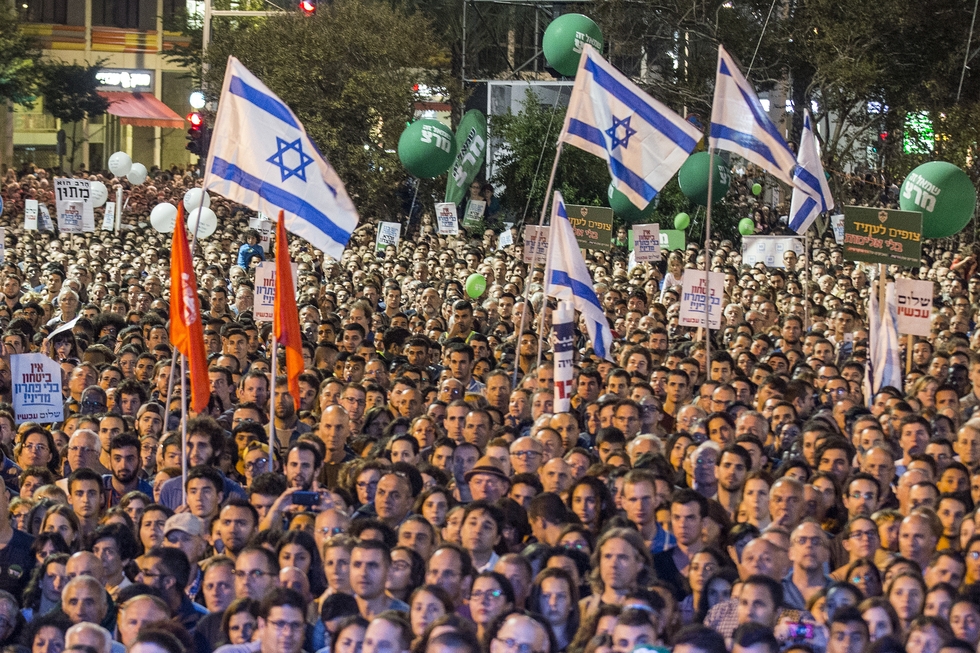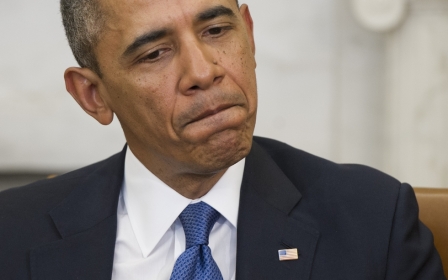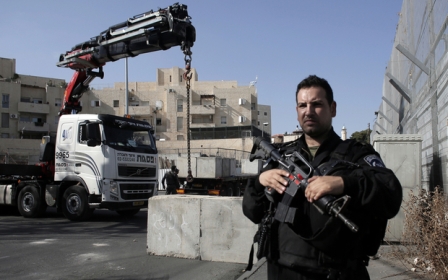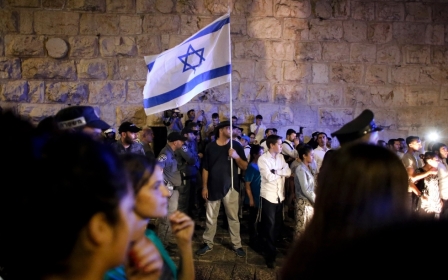Secular left begins to give up hope on Israel

Since the murder of Prime Minister Yitzhak Rabin on November 1995, an annual rally is held in the central Tel Aviv square where he was murdered and which is now named after him. This rally has become a sort of a litmus test to the strength of the so-called "peace camp" in Israel. The more crowded the square is, the higher the spirits are of this side of the political map.
The rally held last weekend in Rabin Square was supposed to therefore give new life to the Israeli peace camp. After years of dwindling crowds, more than 100,000 filled the square. Yet there was very little enthusiasm among the crowd, and the peace process with the Palestinians was rarely mentioned by the speakers.
It was not by chance. The rally's organisers chose to turn it into a non-political event. They even refused to allow ex-president Shimon Peres - Rabin's partner to the Oslo agreements with the Palestinians, which Rabin's killer tried to stop by assassinating him – to address the crowd. Only former US President Bill Clinton dared to utter a few words about continuing Rabin's way towards peace with the Palestinians.
More than anything else, this rally was another sign of the wide feelings of despair, frustration and impotence spread among the liberal and secular (Jewish) centre left in Israel. Not only did its representation in parliament shrink to 30 seats (out of 120), it also lost almost all hope it could form any coherent political programme in order to influence the course of events in Israel and at the same time feels unwanted and even persecuted. The term “peace camp” has almost disappeared from Israeli political jargon.
The current wave of violence only accentuated these feelings of despair and impotence. On the one hand, it is clearer that there is a price to pay for the continuation of the status quo, not only in the occupied West Bank and East Jerusalem but also inside the Green Line, in Tel Aviv, Rishon LeZion, Netanya and elsewhere. On the other hand, even those who stick to the two states idea as a tool to separate Israelis from Palestinians, do not see how they could convince an ever more rightist Israel to agree to such a solution.
Rogel Alpher, an Israeli columnist, put it rather bluntly. Referring to Prime Minister Benjamin Netanyahu's remarks two weeks ago, according to which Israel is doomed to "live by its sword," Alpher wrote that religious Zionists are more apt to live in such a troubled reality. "When you believe that the meaning of life is to be a Jew in the Land of Israel, the land promised to the Jews, convinced that one day the Messiah will come,” he wrote in Haaretz “…[This] makes the Israeli reality rational, necessary and even welcome."
At the same, according to Alpher, Israel is becoming "a hostile environment" for its seculars. They find it hard to bear the apartheid reality created by the continuation of the occupation, and "the cyclical nature" of violence. "Secular Israelis are going around Israel as if they were unclad during an ice age. They have no fur. They shiver from the cold and have a hard time finding food and shelter," writes Alpher. The only option left for them is to emigrate.
Alpher's views may represent a small "post-Zionist" leftist minority, as many of his critics remarked. Yet the uneasiness he referred to has spread much further than this limited circle. In a lengthy reportage on Israel's Channel 10 this weekend, agencies dealing with emigration from Israel to countries such as Canada or Australia reported an unprecedented surge in secular Israelis seeking a better life overseas.
While in the past, it was almost a taboo for Jews to admit that they consider emigrating out of Israel, the current future emigrants were very open about their intentions. In interviews with Channel 10, they named the inability to buy a proper house as one of the reasons which pushed them towards this decision, but it was not the main one. The gradual "religionisation" of Israeli schools and public space, and above all the "terror of the knives" were the straw which broke the camel's back.
"We don't hate the state [of Israel],” said Esty Bar Levi, a resident of a village not far from Ashkelon in southern Israel, an area hit during the recurrent military operations against Gaza. "We understand. This is the way thing are. It’s not for us. We are looking for another road."
What was remarkable is that these statements ran contrary to mainstream Zionist ideology, still very dominant in Israeli Jewish society, according to which Jews can fulfill themselves only in Israel while those emigrating out of Israel are treated almost as traitors.
What makes it more remarkable is that those interviewed did not come from the radical left, like Alpher, but rather from middle-class secular families. The fact that they were able to formulate a coherent set of explanations for their decisions, despite the consensus in Israeli mass media and political parties going against such views, may indicate that the malaise of Israeli seculars is even deeper than meets the eye.
The immigration agencies quoted in this reportage were unable to give overall numbers of Israelis who chose to leave their country. Yet in any case, it is unlikely that we will soon see a massive wave of secular Jews going overseas.
But it is difficult to deny this new reality. Faced with growing violence, with a sense of dead-end vis-à-vis the solution of the conflict with the Palestinian and a more rightist and religiously oriented government, many Israeli seculars feel that they do not have a place in this new Israel and that they do not count any more.
For a political class which has been for many years the backbone of the Zionist movement, this is an almost unbearable feeling. It will not necessarily lead to emigration, but it will certainly lead to despair.
- Meron Rapoport is an Israeli journalist and writer, winner of the Napoli International Prize for Journalism for a inquiry about the stealing of olive trees from their Palestinian owners. He is ex-head of the News Department in Haaertz, and now an independent journalist.
The views expressed in this article belong to the author and do not necessarily reflect the editorial policy of Middle East Eye.
Photo: A general view shows people attending a commemorative rally in memory of late Israeli prime minister Yitzhak Rabin, at Rabin Square in the Israeli coastal city of Tel Aviv on October 31, 2015. The rally is part of commemorations marking the 20th anniversary of Rabin's killing by a right-wing Jewish extremist. (AFP)
New MEE newsletter: Jerusalem Dispatch
Sign up to get the latest insights and analysis on Israel-Palestine, alongside Turkey Unpacked and other MEE newsletters
Middle East Eye delivers independent and unrivalled coverage and analysis of the Middle East, North Africa and beyond. To learn more about republishing this content and the associated fees, please fill out this form. More about MEE can be found here.





